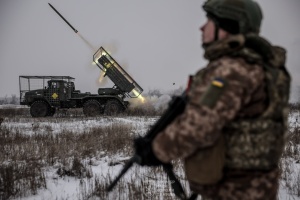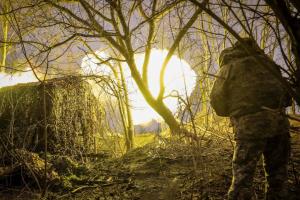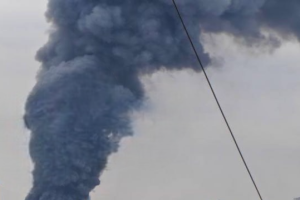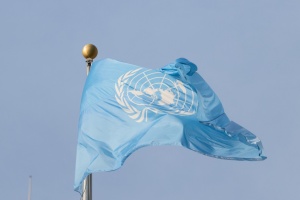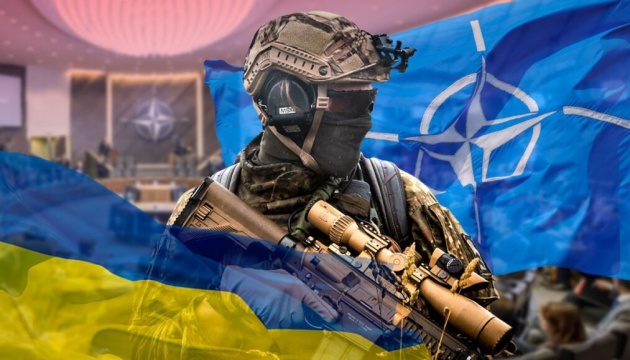
Ukraine - in NATO, but after war: what is risk of such formulation?
The closer we get to the NATO summit in Vilnius, which is scheduled to take place on July 11-12, the more predictions there are about what Ukraine will eventually get as a result. The most actively discussed scenario is that our country will most likely be given an "open-ended ticket to the Alliance," meaning that as soon as the war ends, the process will begin immediately (most member states have a consensus on this). Until then, our partners will offer us a temporary compromise - security guarantees similar to the Israeli model (for more details, see the previous Ukrinform article "Israeli Security Model: Will it be suitable for Ukraine?"). However, there is an important "but" here: won't this "temporary" suddenly become "permanent", won't the condition of "joining NATO after the war" encourage Russia to make sure that this war never ends and turns into an "eternal" war?
More specifics are needed, or what does "after the war" mean?
There are different opinions on this.
Mykhailo Gonchar, an expert on security relations and president of the Center for Global Studies "Strategy XXI", said in a commentary to Ukrinform that in Vilnius Ukraine should receive specifics from its partners regarding NATO membership. Because the lack of specifics, even if it is wrapped in some beautiful euphemisms, will be perceived by Putin as a pretext for "eternal war." And there are two scenarios that can give him such a reason.
The first scenario
"If Ukraine is given an 'open-ended ticket to the Alliance' at the Vilnius summit, without any specifics, it will be just a new word form, and the essence will remain the same as at the Bucharest summit," the expert says.
Back in 2008, NATO's final declaration also spoke of an "open door" policy, a "ticket" and that "in the future, Ukraine will definitely become a full member of the Alliance." However.
"As we can see, 15 years have passed, and the date on the 'ticket' is still open. So if everything happens again, the specter of "eternal war" will become not only our problem, but also the problem of the entire NATO. Because "not inviting" Ukraine automatically means an invitation for Putin to continue his aggression, and this aggression can go far beyond our country," says Mykhailo Honchar.
Ultimately, he believes, this will demonstrate the ultimate weakness of the Alliance. In the context of NATO, it will no longer be about strength and power, but about a "colossus on clay feet."
"Because the war, although it is being waged in Ukraine, is a war in Europe, on NATO's eastern border. And it has been going on for ten years, not 16 months. And as soon as Russia realizes that the formula of "open-ended ticket" is the same as it was 15 years ago... Well, the Kremlin will only applaud this," the expert emphasizes.
The second scenario
If the wording sounds a little different, that is, in Vilnius Ukraine will be given an "open-ended ticket", and this date will mean as soon as the war is over.
"Someone may think that there is more specificity here. But it is not quite so. The phrase "as soon as the war is over" can be interpreted in different ways, meaning that it is not yet fully clear what it really means - does it mean the cessation of hostilities, the return to the 1991 border, or maybe something else is meant? This is the first," says Mykhailo Honchar. - "And the second is that the phrase 'as soon as the war is over' is precisely the stimulus for Putin to never end it. Because until the war is over, Ukraine will not be able to claim anything in terms of membership in the Alliance."
That is, both the first [simply "open-ended ticket»] and the second scenario [«open-ended ticket: as soon as the war is over»] will be perceived by Putin as NATO's weakness, and therefore he will do everything to make the war last indefinitely.
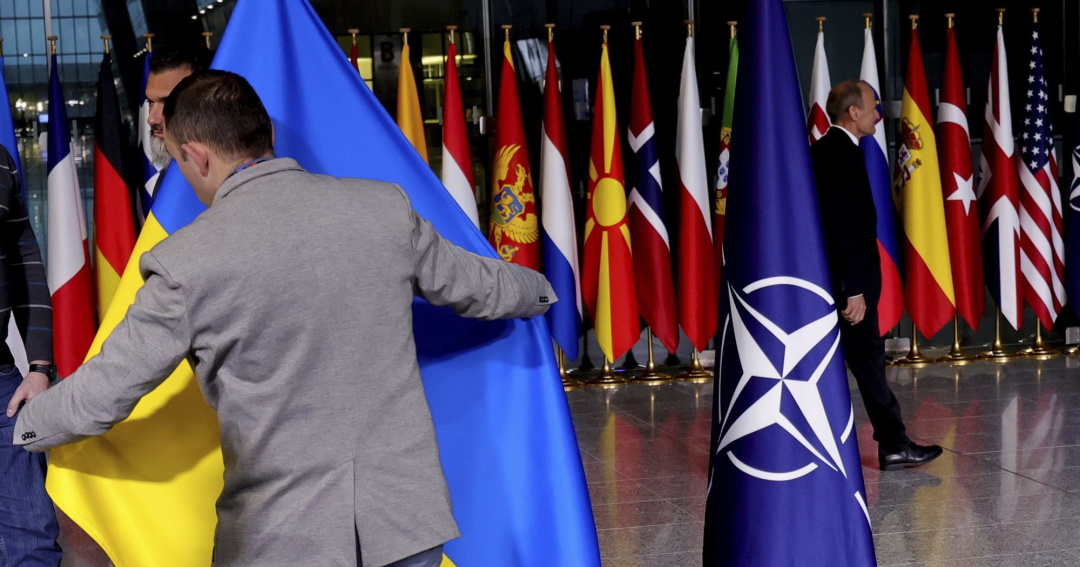
And this is the opinion of Volodymyr Ohryzko, Minister of Foreign Affairs of Ukraine in 2007-2009: "Russia will try not to end this war ever. And even when Ukraine expels this Moscow horde from its land, there will most likely be shelling of the border regions, and maybe even what is happening now - missile attacks deep into the territory of Ukraine. So it is naive to think that Russia will put an end to this. And yes, of course, if Ukraine is given a "ticket to the Alliance with an open date: as soon as the war is over" at the July NATO summit, then there will be no question of any full stop."
The diplomat also commented on an initiative that is currently circulating on the Internet: "What if Ukraine is accepted into NATO, but while the war is still ongoing - without Article 5?"
"I have heard about this and even participated in discussions on this topic. And to those who come up with such initiatives, I immediately ask a very simple question: what, in fact, remains in NATO without Article 5? This is a key element. Take away this article and everything else immediately loses its meaning," says Mr. Ohryzko. - "Because what, for example, would the absence of Article 5 mean for 80% of the Alliance members? That they would be unprotected. Poland, the Baltic States, Romania, and so on - all of them would immediately be under direct threat from Russia. This is NATO without NATO... All of this reminds me of the talk that "the doors of the Alliance are open" and that Ukraine will become a member someday. I'm sorry, but this "someday" must finally be defined and finalized. And this proposal does not suit us, it is more from the evil one."
In turn, diplomat Vadym Triukhan believes that Russia is at war not because it fears Ukraine's accession to NATO, but because Putin and his henchmen fear Ukraine as a democratic, economically developed and militarily powerful state.
"In this form, Ukraine is a threat to the Putin regime," emphasizes Mr. Triukhan. - "We should not think that today NATO is able to significantly strengthen our country militarily. For 16 months, Ukraine has proved that it is capable of repelling Russian aggression even without NATO membership. Therefore, no matter what decision is made in Vilnius, it will not lead to any changes right now. Russia will fight Ukraine as long as it has resources. Russia will fight against Ukraine as long as the regime in Moscow has the distinct features of fascism and Nazism.
However, the expert agrees, the decision to "join after the war" may, of course, further encourage Russia to never end this war."
But there is a way out: how can Ukraine and its partners help prevent an "eternal war"?
Volodymyr Ohryzko believes that we should start from the opposite: "If the Armed Forces of Ukraine do expel Russian troops from our land, the next day NATO should announce that they are inviting Ukraine to join the Alliance, and at the time of this accession, Ukraine should receive nuclear guarantees from the United States, Britain, and France. Then, I think, Moscow will think a dozen times whether it is worth shelling Ukraine, facing a response from NATO member states."
Otherwise, it will continue indefinitely.
"Another point to count on is that Russia's military defeat in Ukraine will mean a major political earthquake in Russia itself. It seems to me that Putin will not survive this earthquake, his regime will fall. And it will be easier to find a common language with the new regime, whatever it may be. Even if this regime will temporarily consist of those who are now standing in the first or second row around Putin. One way or another, it will be a completely different story," says Mr. Ohryzko. - "I think this new configuration of political forces in the Russian Federation will allow us to take a different look at the key issues of relations between the West and this post-Putin entity. In any case, the main factor that can seriously advance the topic of Ukraine's accession to NATO is the success of our Armed Forces and the complete and total expulsion of the occupation forces from Ukrainian soil. And then the situation will tell us."
According to Vadym Triukhan, in order for the war to end and not turn into an "eternal war," our partners must want Russia's military defeat.
"The military defeat of the Russian Federation implies the unconditional surrender of its armed forces, regime change, and bringing to international criminal responsibility those guilty of crimes of aggression and other war crimes. It also provides for the demilitarization, denazification and decentralization of Russia."
Because the Russian Federation as it is now, even with a hypothetical peace agreement, will still, sooner or later, resume implementing its aggressive plans, dream of destroying Ukraine and, in general, preventing the democratic development of its neighbors.
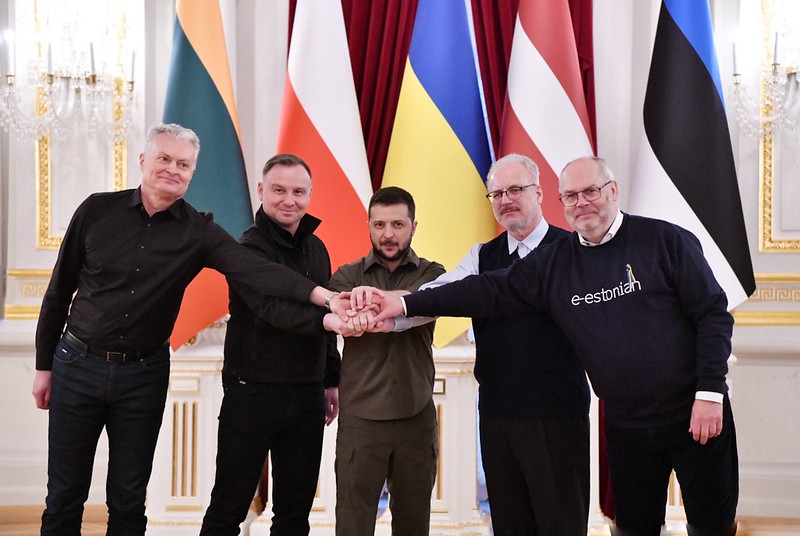
"What exactly should our partners do to inflict a military defeat on Russia? The answers are obvious. First, they should accelerate the provision of F-16 and similar fighters to Ukraine, and in the next one to three years - another F-35."
Secondly, partners should finally provide long-range missiles and help Ukraine implement its own projects to produce such missiles.
Third, they should create joint ventures for the production of armored vehicles.
"Armored vehicles, as you know, are a consumable. And we need a lot of this stuff. After all, the war, given the intentions of the Russian Federation and its resources, can last for another one to three years, at least. Accordingly, we need to plan for the future."
Fourth, the partners should help Ukraine create its own or a joint venture to produce artillery shells and charges for MLRS and tanks.
"Only the localization of production in Ukraine or in the territories neighboring Ukraine will allow us not to feel hunger in terms of supplying troops with ammunition," emphasizes Vadym Triukhan. "These four points are nothing fundamentally new, but they are key. However, there is a problem: The West, having already matured to the point where it cannot, for reasons of principle, allow Ukraine's military defeat, because for more than a year of the Great War huge resources were invested in the defense of our country, has not yet matured to the point where Russia must suffer a military defeat."
Mykhailo Honchar recalled a book by British General Richard Shirreff titled "2017: War with Russia: An Urgent Warning from the Senior Military Command". The expert emphasizes that Mr. Shirreff wrote this book with knowledge of NATO's internal workings.
"That is, Shirreff is aware of how things really work in this organization. Of course, his book has a fantastic plot, but it is based on real events [the Russian occupation of Crimea]. In short: Russia invades the Baltic states, NATO has to react, launch a collective security mechanism, but nothing works. Why? Because there is no consensus: the Germans insist on negotiations, the Greeks are categorically opposed to any armed response. And then the U.S.-British-Polish Alliance takes the initiative, and everything ends in a happy ending," says Mr. Honchar. - "What am I getting at? The situation now is very similar to what Richard Shirreff described. That is, we need a small-format Alliance of the Resolute within NATO. Unfortunately, the United States, instead of being in the vanguard, is languishing somewhere in the rearguard. However, we see that in Europe, the voice of those who are ready to confront Putin not only in a verbal and diplomatic way is increasingly heard."
We are talking about the Baltic states, Poland, and the UK's position also looks quite tough.
"So, answering the question "how can we help prevent Russia's 'eternal war'?", I will say this: the turning point in the war in the center of Europe will come when a small-format alliance is formed that will start acting preventively to defeat the Putin regime. At the same time, it is not necessary for any of the member states to come to our aid with their armed forces," says the president of the Center for Global Studies "Strategy XXI".
"But we can be given more weapons, without restrictions, and not the way it is done now - not fully, not enough, too late and with small ammunition. In the end, Russia can be beaten hybridly - with its own weapons.
"What does this mean? What happened with the explosion of the Kakhovka hydroelectric power plant is, in fact, the use of weapons of mass destruction. And the members of the Alliance, at least a group of countries (because, again, it is virtually impossible to reach a consensus in NATO, given the position of Hungary and Turkey, and Russia, by the way, is well aware of this) could block, for example, the passage of tankers through the Danish straits going to the Baltic ports to load oil and oil products as an asymmetric action. This is one of the options," emphasizes Mykhailo Honchar.
In any case, the Vilnius summit will be a milestone: either it will result in the formation of a vanguard that will not just react to Russia's actions in some way but actually counteract it, or, in fact, the Alliance will split. Let's hope for the first "or".
Myroslav Liskovych. Kyiv

